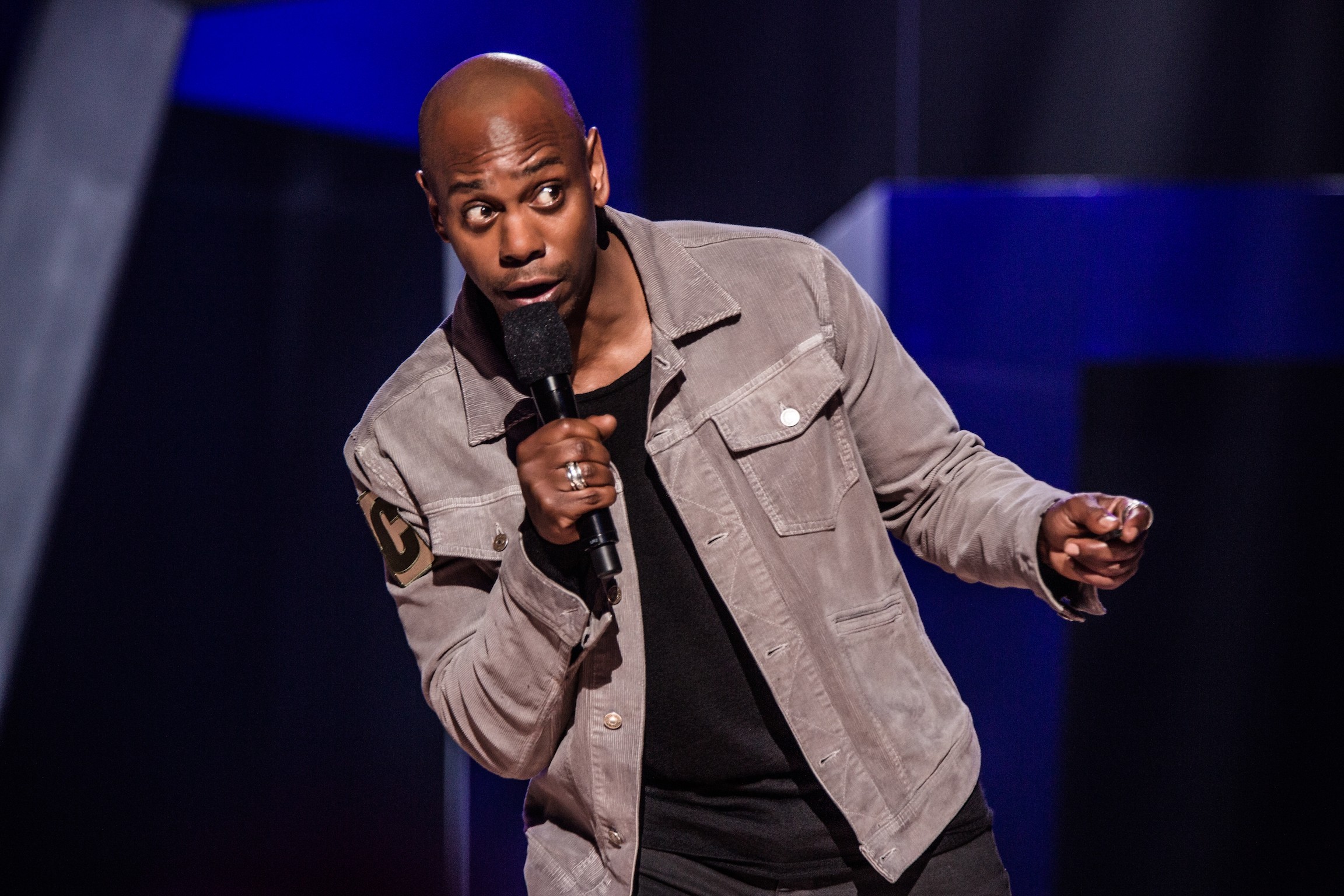
Dave Chappelle is an iconic American comedian, actor, writer, and producer, widely regarded as one of the greatest stand-up comics of all time. Known for his incisive, bold humor, Chappelle addresses complex topics such as race, social justice, politics, and cultural taboos, often blending sharp commentary with absurdity and observational humor.
Early Life and Career:
Dave Chappelle was born on August 24, 1973, in Washington, D.C. He developed an interest in comedy at a young age, and after moving to New York City in the early 1990s, he began performing at stand-up clubs. He quickly gained a reputation as a fearless comic with a unique voice, earning the respect of fellow comedians and audiences alike.
Rise to Fame:
Chappelle's breakthrough came in the late 1990s when he appeared on television shows like "Def Comedy Jam" on HBO, which helped launch his career. He became a regular on the stand-up circuit and went on to create his own show, "Chappelle's Show," which debuted on Comedy Central in 2003. The show was an instant hit, known for its fearless social commentary and unforgettable sketches, such as the "Charlie Murphy's True Hollywood Stories" and the satirical portrayal of racial and cultural issues.
"Chappelle’s Show" was groundbreaking in its ability to discuss race and inequality while using humor to challenge societal norms. Some of its most iconic sketches include the "Black Bush" (a parody of George W. Bush) and "The Racial Draft." However, Chappelle famously walked away from the show in 2005, leaving a significant portion of the third season unfinished, citing stress, pressure, and a desire to avoid the fame and commercialization that came with his success.
Stand-Up Career:
After leaving "Chappelle's Show," Dave Chappelle spent several years out of the public eye before returning to stand-up comedy in the mid-2010s. His return was met with huge anticipation, and his stand-up specials for Netflix — particularly "The Age of Spin," "Deep in the Heart of Texas," and "Equanimity" — garnered critical acclaim and widespread popularity. Chappelle's later stand-up specials dive deeply into topics like race relations, the #MeToo movement, and the complexities of modern society.
Controversy:
While Chappelle remains a beloved figure in comedy, his more recent stand-up specials have sparked controversy due to his outspoken views on sensitive subjects like transgender issues and cancel culture. Critics argue that some of his jokes perpetuate harmful stereotypes, while supporters maintain that Chappelle is simply pushing the boundaries of comedy and challenging societal norms.
Awards and Recognition:
Dave Chappelle's talent and influence have been widely recognized. He has won multiple Emmy Awards for his stand-up specials, including several for his work on Netflix. In 2020, he also won the Mark Twain Prize for American Humor, cementing his legacy as one of the most influential comedic voices of his generation.
Legacy:
Chappelle's influence on comedy is immense. He has shaped the genre with his daring exploration of complex, often uncomfortable topics and has set new standards for stand-up comedy. His ability to mix humor with cultural and political insight has made him a unique and often polarizing figure in entertainment. Whether adored or criticized, Dave Chappelle remains a titan of comedy, with a career that continues to evolve and provoke thought in equal measure.